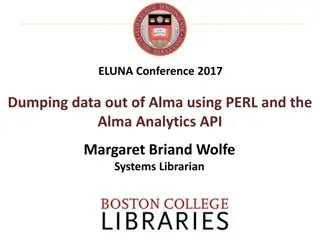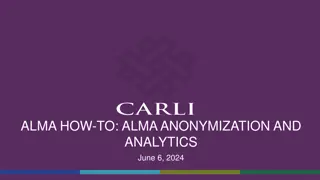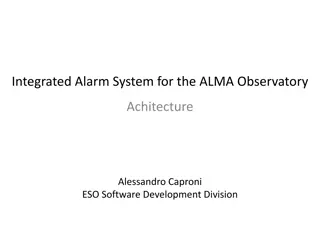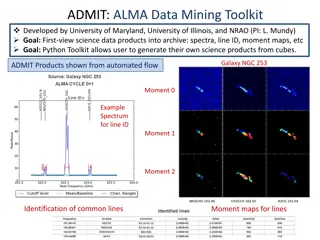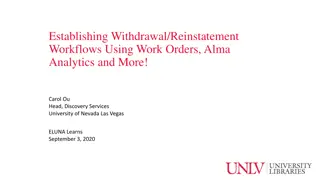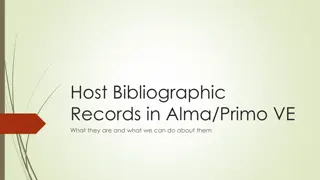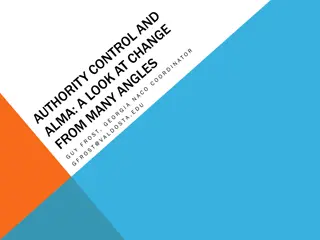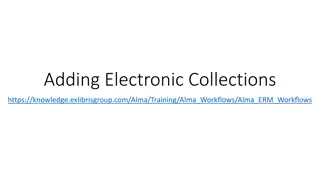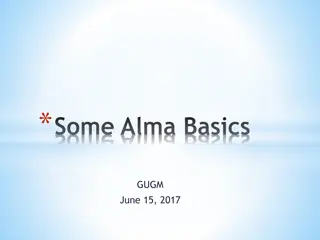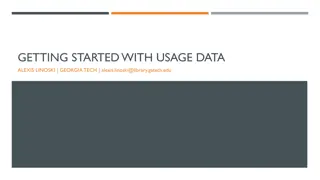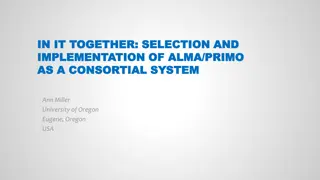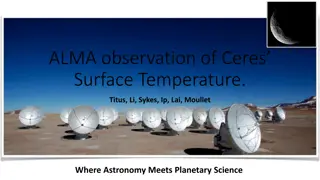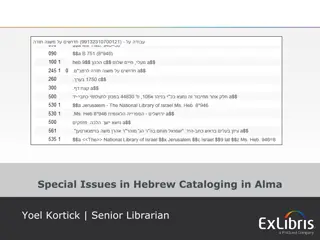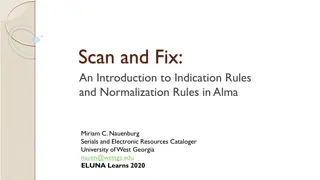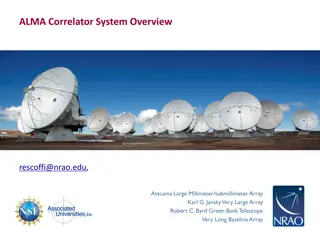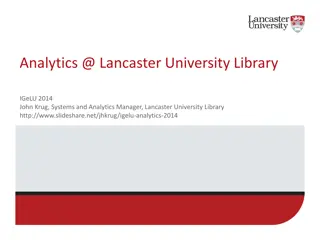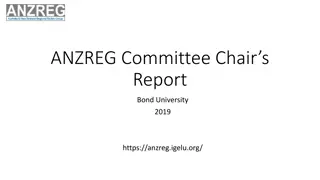Experience with Alma at Northeastern University
Northeastern University in Boston, Massachusetts, shares its experience with adopting Alma, focusing on the benefits, challenges, and outcomes of migrating from the III Millennium system. The transition to Alma brought advantages such as cloud-based operations, improved reporting tools, and enhanced workflows, despite the complexities of migration. The post-implementation feedback highlights positive aspects of real-time information access, automated processes, and advanced analytics capabilities.
Download Presentation

Please find below an Image/Link to download the presentation.
The content on the website is provided AS IS for your information and personal use only. It may not be sold, licensed, or shared on other websites without obtaining consent from the author. Download presentation by click this link. If you encounter any issues during the download, it is possible that the publisher has removed the file from their server.
E N D
Presentation Transcript
+ Northeastern University (Boston, Mass.) & Alma Amira Aaron Associate Dean, Scholarly Resources IGELU Oxford, September 2014, Session 10
+About Northeastern University Global research university Over 26,000 FTE in urban Boston location Additional sites in Seattle & Charlotte, NC will be others Large online presence for courses & professional education Main library (SNELL) & Law Library Member of the Boston Library Consortium Over 92% of purchases are electronic Buy very little print Former III Millennium user for many years Heavy user of local and consortial demand-driven acquisitions for e-books
+Alma Early Adopter Contract signed December 2011 Went live July 2013 Alma benefits that we considered: Cloud system no local maintenance, upgrades, etc. Open, modern platform flexible, service-oriented architecture Reporting and analysis tools, including usage information Do away with print and electronic silos wanted concentration on electronic processes Separate back-end and discovery layers Promise of cooperative efforts & sharing of data with others Promise of better workflows and integration with vendors Difficult migration from Millennium (second customer with very little documentation or detailed knowledge)
+THE REALITY - Positive General: System in the cloud, and being able to access Alma from anywhere, is a definite positive! Real-time information for allocations, expenditures, encumbrances & available balances fiscal functionality Automated processes & workflows Alma/Banner connection works well eliminates manual keying Managing funds ease of use; add/update allocations to funds is streamlined, ability to identify records to disencumber Set functionality copying and sharing sets, new functionality of turning a logical set into an itemized set for updating Ability to apply custom normalization rules for batch record enhancement and import Analytics is powerful and has the potential to be an excellent tool.
+THE REALITY - Positive Some specifics: Link to LC MARC format documentation within Metadata editor Alma maintains a record of the notices sent to patrons Simple process for adding a proxy borrower to a patron s account Easy access navigation buttons for circulation transactions Linking functionality in Alma e.g., linking orders, portfolios and licenses New ability to display licensing terms in Primo Ability to export lists from the system Ability to run jobs on large batches of records for updating EDI invoicing works well Simple to input a manual invoice Usage statistics SUSHI or import promised Analytics report on cost per use (almost there)
+THE REALITY Less Positive General Integration of various formats (URM) not yet realized; silos still exist inability to reach all data from all functions of Alma Electronic resource functionality not yet fully developed (disappointing that SFX functionality was not replicated) licensing functionality is especially weak Authorizations are not granular enough and often not logical need a read-only authorization! System is still very rigid as to making changes, corrections or editing records Inconsistency in necessary actions, terms and data presented across the system Material types are still confusing and too many different lists! Limits of 5000 for export & loading to create sets are not adequate Documentation is still often incomplete, confusing or inaccurate Need a list of known issues to save everyone s time!
+THE REALITY Less Positive Some specifics: Batch processes, such as Patron User loads, too brittle one error aborts the load should just get reported out Reliance on MarcEdit and Excel to perform tasks previously done in ILS additional time and staff training Analytics - not reliable - still can t report consistently on some important fields (e.g. reporting code ) or combine print/electronic; problem with various counts Audit trail is harmed by data, such as receipt date and original location, being deleted when an item is deleted Course reserves entire workflow is daunting easy to miss steps and make mistakes! Suppressed records still show as on reserve. Not able to customize notices at Library or Desk levels. Order record data sets functionality is lacking Unable to link at article level for local/standalone portfolios Title searching via Search External Resources is difficult
+Conclusions Thus Far Moving to Alma as an early adopter has ultimately put the Northeastern University libraries in a very good place After a difficult two years, we are starting to realize the potential of Alma in many areas, including staff savings Both Alma and Primo are improving rapidly sometimes almost too rapidly for us to keep up with! It has been a definite learning process, both for us as a customer and for Ex Libris We are somewhat concerned about support issues and the ability of Ex Libris to keep up with the tremendous growth of Alma, both staff support and the technical infrastructure It will be exciting to see where we go from here and if the promise of cooperative use of Alma and sharing of data can be realized in the future


